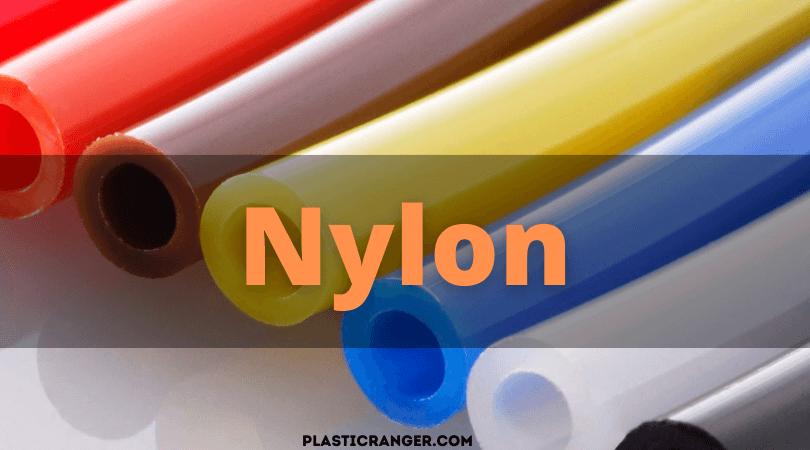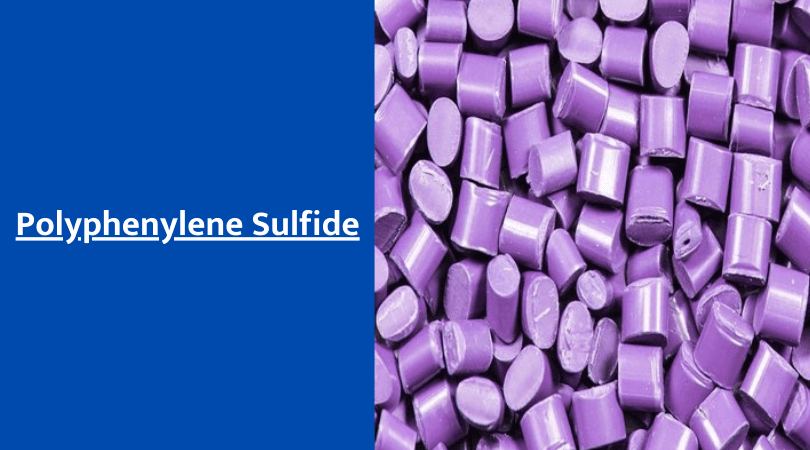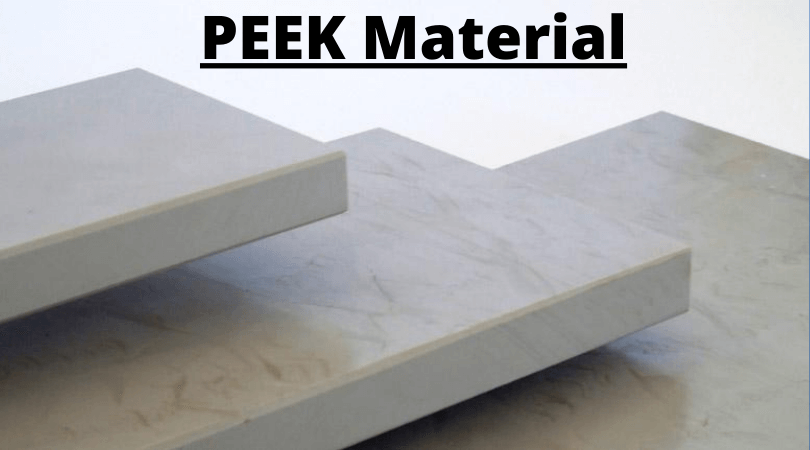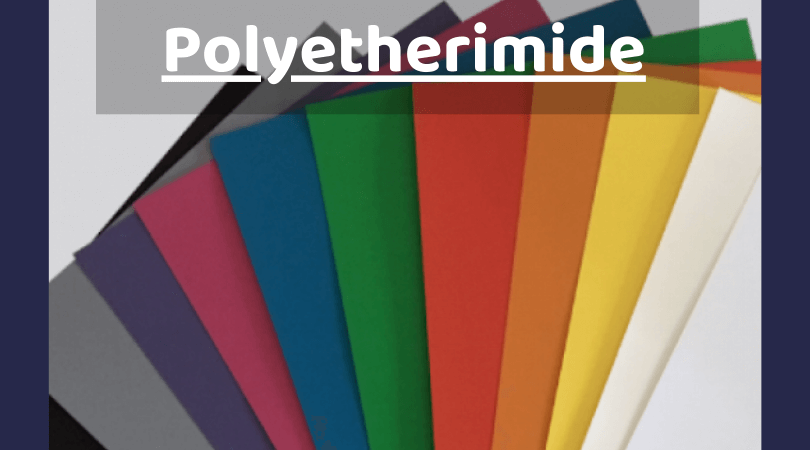Plastics with high tensile strength can be a significant game-changer for producing high-value goods in various sectors, changing millions of lives. Let’s find out more about plastic material with phenomenal tensile strength.
What Are The Top High-Strength Plastics?
Tensile strength is a plastic material’s ability to resist the maximum amount of tensile stress while being pulled or stressed without failure. A material experiences plastic deformation when it can no longer return to its original shape after being stretched or compressed.

Tensile strength is one of the most critical factors within all mechanical properties of plastic materials. It is an essential aspect of structural applications.
Talking about high tensile strength plastics, we have 5 plastics on our list with the industry’s highest tensile strength.
Without further ado, let’s begin the salient list.
- Nylon
- PPS (polyphenylene sulfide)
- PEEK (polyetheretherketone)
- PEI (polyetherimide)
- PAI (polyamide-imide)
Nylon

On our list, coming at number #5 is one of the most commonly known plastic materials with a tensile strength of 12,400 psi (85.4 MPa).
Nylon is a high-performance, strong engineering thermoplastic often used as an alternative to latex, rubber, and silk.
It has a relatively high melting point of 232 °C and is used extensively in many applications like textiles, tire components, rubber, ropes, threads, automobile parts, etc.
Key Properties
- Excellent electrical insulating properties
- Low dimensional stability
- Readily attacked by mineral acids and polar solvents
- Good fatigue resistance
- Good impact strength at both high and low temperatures
- Perfect fuel and oil resistance.
- Dyeing is necessary before processing.
Below is a table of general properties for the most common Nylon variations:
Property | Units | ASTM Test | Extruded NYLON 6/6 | Cast NYLON 6 | Oil-Filled Cast NYLON 6 |
| Flexural modulus | psi | D790 | 410,000 | 420,000 – 500,000 | 375,000 – 475,000 |
| Tensile Strength | psi | D638 | 12,400 | 10,000 – 13,500 | 9,500 – 11,000 |
| Heat deflection temperature – 264 psi | °F | D648 | 194 | 200 – 400 | 200 – 400 |
| Water absorption (immersion 24 hours) | % | D570 | 1.2 | 0.60 – 1.20 | 0.50 – 0.60 |
| Maximum continuous service temperature in air | °F | – | 210 | 230 | 230 |
| Coefficient of linear thermal expansion | in/in/°Fx10-5 | D696 | 4.5 | 5 | 5 |
| Izod Impact | ft-lbs/in of notch | D256 | 1.2 | 0.7 – 0.9 | 1.4 – 1.8 |
Applications
Electrical and Electronics Applications: Nylon has various electronics and electrical components applications. The material has to go through a test called GWIT and UL94.
As nylon is a flame retardant, it has a huge advantage in electrical products, especially in miniature and thin design applications.
Food Packaging: Nylon’s high usage in food packaging is due to its excellent puncture resistance and good barrier resistance to gases like oxygen, carbon dioxide, and other gases.
Consumer Products: Salient properties like mechanical resistance, easy shaping, and colorability are relevant for consumer products.
Automotive: It is primarily used in under-the-hood parts in automobiles.
Features like good chemical and temperature resistance and excellent processability make it a prime alternative metal for automotive parts.
Nylon tensile strength is reliable, making it a suitable polymer for automobile-related applications.
PPS (polyphenylene sulfide)

At #4 stands PPS with a tensile strength of 12,500 psi (86 MPa) and a melting point of 280 °C (536 F).
It is a semi-crystalline, rigid, opaque, high-temperature engineering thermoplastic with excellent properties like high-temperature resistance, dimensional stability, good chemical resistance, excellent mechanical strength, good electrical insulation properties, and natural flame resistance.
It is resistant to acids, alkalies, bleaches, aging, mildew, abrasion, and sunlight.
PPS Applications
Automotive: “Under the hood” application, brake, and fuel systems.
Medical Industry: Surgical Instruments
Industrial Applications: Valves, slide bearings, compressor and pump parts, chain guides, and base plates.
Chemical Industry: Bushings, pumps, nozzles, tubes, and rollers.
Electronics industry: Heat shields, connectors, contact rails, chain guides, base plates, contact pressure discs, semicons.
PEEK (polyetheretherketone)

At number 3 comes PEEK, one of the plastic industry’s most commonly used engineering thermoplastics, with a tensile strength of 14,000 psi (96.5 MPa).
Like PPS, it is chemical and water-resistant and can operate at a high temperature of up to 250 °C.
It belongs to the polyketone family of polymers (PEK, PEEK, PEEKK, PEKK, PEKEKK), and the PEEK is the most utilized polymer.
Key Properties
- Good dimensional stability
- Excellent insulation properties
- Long life
- Great sterilization resistance at high temperatures
- Low friction
- Biocompatible
Applications
Automotive: Bearing, washers, seals, bring and air-conditioning systems, active components.
Medical and Healthcare: endoscopes, dental instruments, dialyzers, sterile boxes, canal files, load-bearing implants.
Aerospace: exterior and interior parts, electrical systems, protect wires, convoluted tubings, fiber optic filaments.
Electrical and Electronics: coaxial connecter jacks used in telephones, surface-mounted trimming potentiometers, printed circuit boards, etc.
PEI (polyetherimide)

PEI is the second last contender today, ranking #2 with a tensile strength of 15,200 psi (105 MPa).
It is an amorphous engineering thermoplastic with properties similar to PEEK but lower impact strength.
One of the few limitations of polymer is its high cost and suitability with only demanding applications and colorability.
It is also readily attacked by polar chlorinated solvents leading to stress cracking.
Key Properties
- Excellent retention of mechanical properties at elevated temperatures.
- It’s an unparalleled combination of excellent dimensional stability, flexibility, high specific strength, and rigidity.
- Good UV light resistance and weatherability.
- Displays good hydrolytic stability.
- High resistance to alcohols, acids, and hydrocarbons dissolves partly in halogenated solvents.
- Inherent flame resistance without using additives.
- Good electrical properties remain stable within various temperatures and microwave frequencies.
Applications
Automotive: Bezels, reflectors, thermostat housings, throttle bodies, transmission components, ignition components, fuses, ignition switches, solenoid bodies, gears, and pump drives.
Electrical and Electronics: Connectors, printed circuit boards, electrical switches & controls, motor parts, electronic chips, and capacitors.
Medical: Membrane applications, surgical instrument handles, instruments, non-implant prostheses.
PAI (polyamide-imide)
I’ve got the king of all high-strength plastics, PAI, with a tensile strength of 21000 psi (145 MPa) at the end of the list. It’s a strong and stiff material used at highly elevated temperatures where other materials would fail.
It has impressive dimensional stability with a high coefficient of friction. That set of properties makes it suitable for applications with machining to tight tolerances.
The common applications include chip test sockets, machinery parts, and aerospace components.
Standard Values of Tensile Strength, Elongation, and Tensile Modulus in Polymers
| Material | Tensile Strength (MPa) | Elongation (%) | Tensile Modulus (GPa) |
| Polyethylene (PE) | 20 – 35 | 100 – 1000 | 0.2 – 1.5 |
| Polypropylene (PP) | 25 – 40 | 100 – 600 | 1.0 – 2.0 |
| Polyvinyl Chloride (PVC) | 40 – 60 | 50 – 300 | 2.0 – 3.0 |
| Polystyrene (PS) | 35 – 75 | 1 – 5 | 2.5 – 3.5 |
| Polymethyl Methacrylate (PMMA) | 65 – 100 | 1.5 – 5 | 2.0 – 3.5 |
| Polyethylene Terephthalate (PET) | 50 – 75 | 50 – 150 | 2.0 – 2.7 |
| Polyamide (Nylon) | 45 – 85 | 50 – 300 | 1.5 – 4.0 |
| Polycarbonate (PC) | 55 – 75 | 80 – 150 | 2.0 – 2.4 |
| Polyether Ether Ketone (PEEK) | 90 – 100 | 50 – 150 | 3.5 – 4.0 |
| Acrylonitrile Butadiene Styrene (ABS) | 40 – 50 | 20 – 40 | 2.0 – 2.5 |
FAQs

Below are the frequently asked questions on high strength polymer and nylon tensile strength. Let’s dig deep to know more.
Which is the toughest plastic?
Polycarbonate is the toughest plastic of all. It’s 200 times stronger than glass and is warranted against breaks and cracks.
What is the difference between tensile strength and yield strength?
Yield strength is a material’s ability to resist stress without permanent deformation. In contrast, tensile strength is the maximum stress a material can resist while being pulled to stretched before breaking or failing.
What is a high-performance polymer?
A high-performance polymer can retain desirable mechanical, electrical, thermal, and physical properties even when exposed to harsh environments like high temperatures, corrosive chemicals, and high pressure.
How can you increase the tensile strength of nylon?
Nylon’s tensile strength can be increased by increasing individual nanofiber strength and fiber-fiber load sharing. Single-walled carbon nanotubes are also being utilized to increase nylon’s tensile strength.
How can the mechanical properties of materials be improved?
There are four ways to improve the mechanical properties of polymers. However, these methods won’t significantly improve but will make little changes.
- Use hotter mold temperatures.
- Use high injection speed.
- Avoid high melt temperature.
- Injection pressure has little effect.
Suggested Read
- Top 10 High Impact Resistant Plastics
- Top 12 Plastic Film Manufacturers and Suppliers
- HDPE Pipe Sizes and Dimensions | A Complete Analysis
- What is Warpage? | Causes of Warpage | Warpage Variations
- Top 10 Plastic Injection Molding Companies In United States
- What is Condensation Polymerization? | The Definitive Guide
- What is PVC Fittings? | What is PVC Connection? | The Definitive Guide
Summary
High tensile strength plastics play a crucial role in various industries, such as aerospace, automotive, and medical.
The top 5 high tensile strength plastics – PEEK, Nylon, PAI, PEI, and PPS – are ideal for applications that demand robustness and endurance in challenging engineering and manufacturing settings.
These plastics possess distinctive characteristics, which make them increasingly popular in different areas, replacing traditional materials like metals.
With the rapid advancement of technology, the use of high tensile strength plastics is expected to grow even more, leading to innovative solutions and transformation in modern manufacturing processes.
Kindly share your reviews in the comment section.
Have a mesmerizing day.
Quick Navigation

Brillant article. Keep up the good work.
Thanks